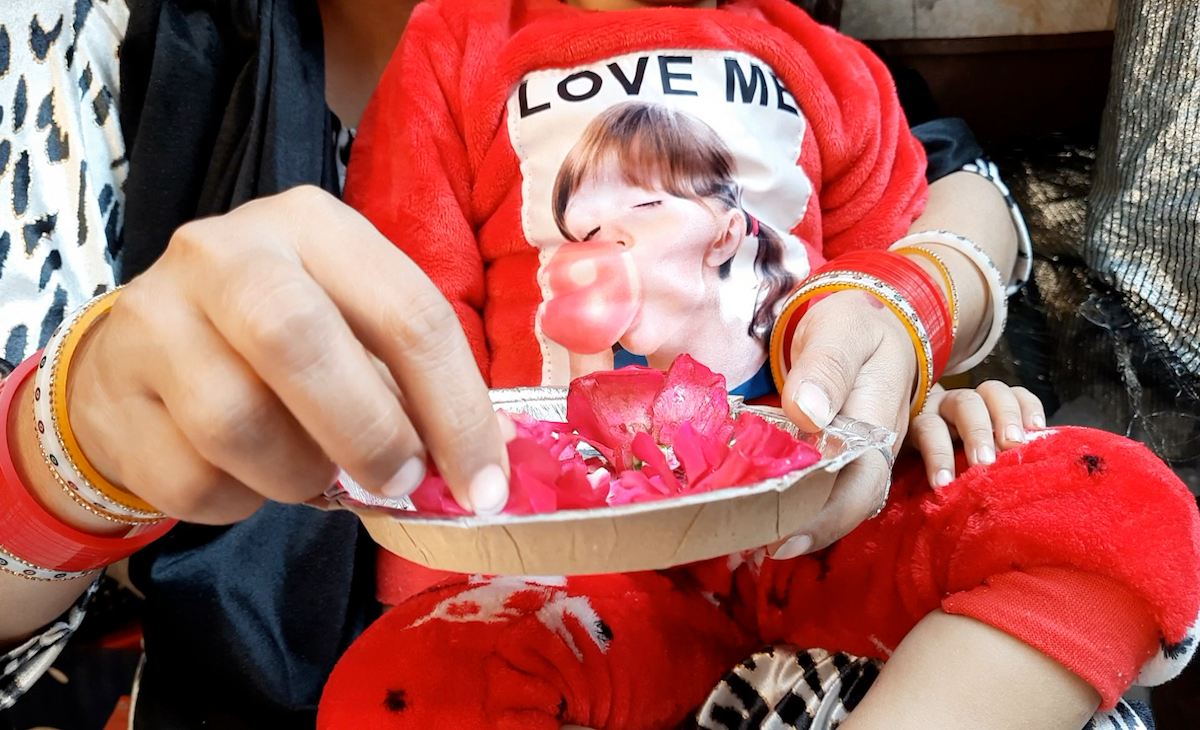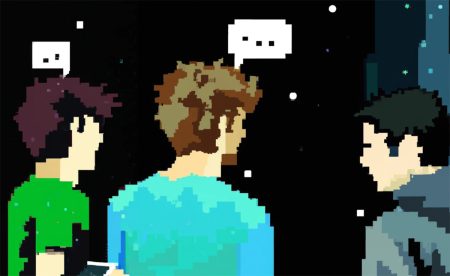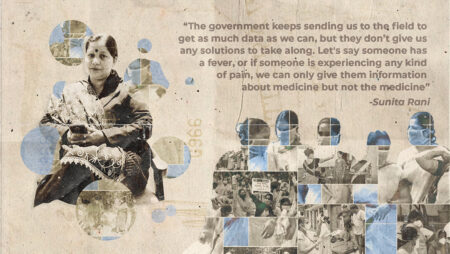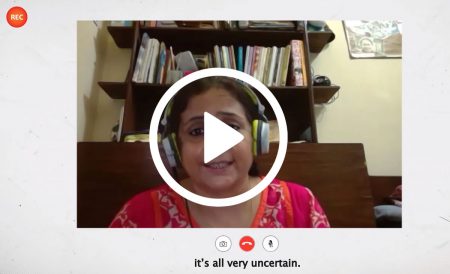Do you remember the last time you were a stranger in a place? What did you see? What did you hear? How did you feel?
As an educator working with the visual medium, I’ve been curious: what can we learn from the experience of being a stranger in a new place? Can that brief moment of curiosity, of seeing something for the first time, of observation, be transferred pedagogically into something firmer than fleeting fancy — that act of discovering, as it were?
In the winter of 2021, the first batch of The Third Eye’s Learning Lab Digital Educators (DEs) Program came to Delhi for a workshop from Pisangan and Baap (Rajasthan) as well as Mehroni, Lalitpur and Lucknow (Uttar Pradesh). The DE program is shaped by arts-based pedagogical methods and seeks to skill grassroots workers in experiential narrative-making using the feminist lens. The workshop was facilitated by artists and educators Shefalee Jain and Lokesh Khodke, with the help of the Learning Lab team.
The three days of the workshop were essentially an exercise in discovering one’s own self in a new space, by being attentive to our senses and our own way of experiencing the unfamiliar.
We went into small, seemingly insignificant details of what comprises a space: its smells, sounds, people, besides much else that is non-verbal. What does the unfamiliar make us see, find, want, do? What of ourselves — and our biases and inhibitions — do we encounter? Which of these do we shed? How do we cope with our discomforts?
We all went to Bakhtiyar Kaki’s Dargah in Adhchini, New Delhi.
Shefali and Lokesh describe their intent in designing the observation exercise on the first day of the workshop. “While the participants were new to the city, they were familiar with working in the field as social workers. We wanted to try and do an exercise by which their relationship to their fieldwork could be thought about in a slightly different and playful way.”
“Bakhtiyar Kaki’s Dargah brings together people of many faiths, religions, classes, age groups and genders. There is also a small market outside the dargah. There are three different entries or exits, and each one leads to galis or mohallas around the dargah.
The [Bakhtiyar Kaki Dargah] area is layered with histories and stories. We thought it could be an ideal place to have a workshop in listening and observation.”
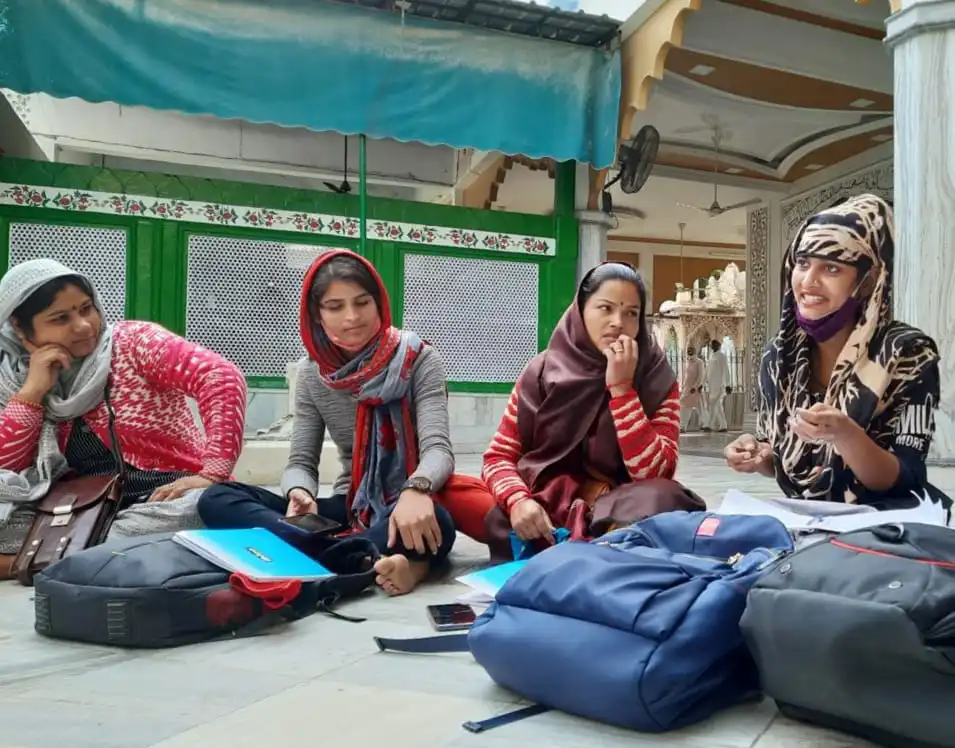
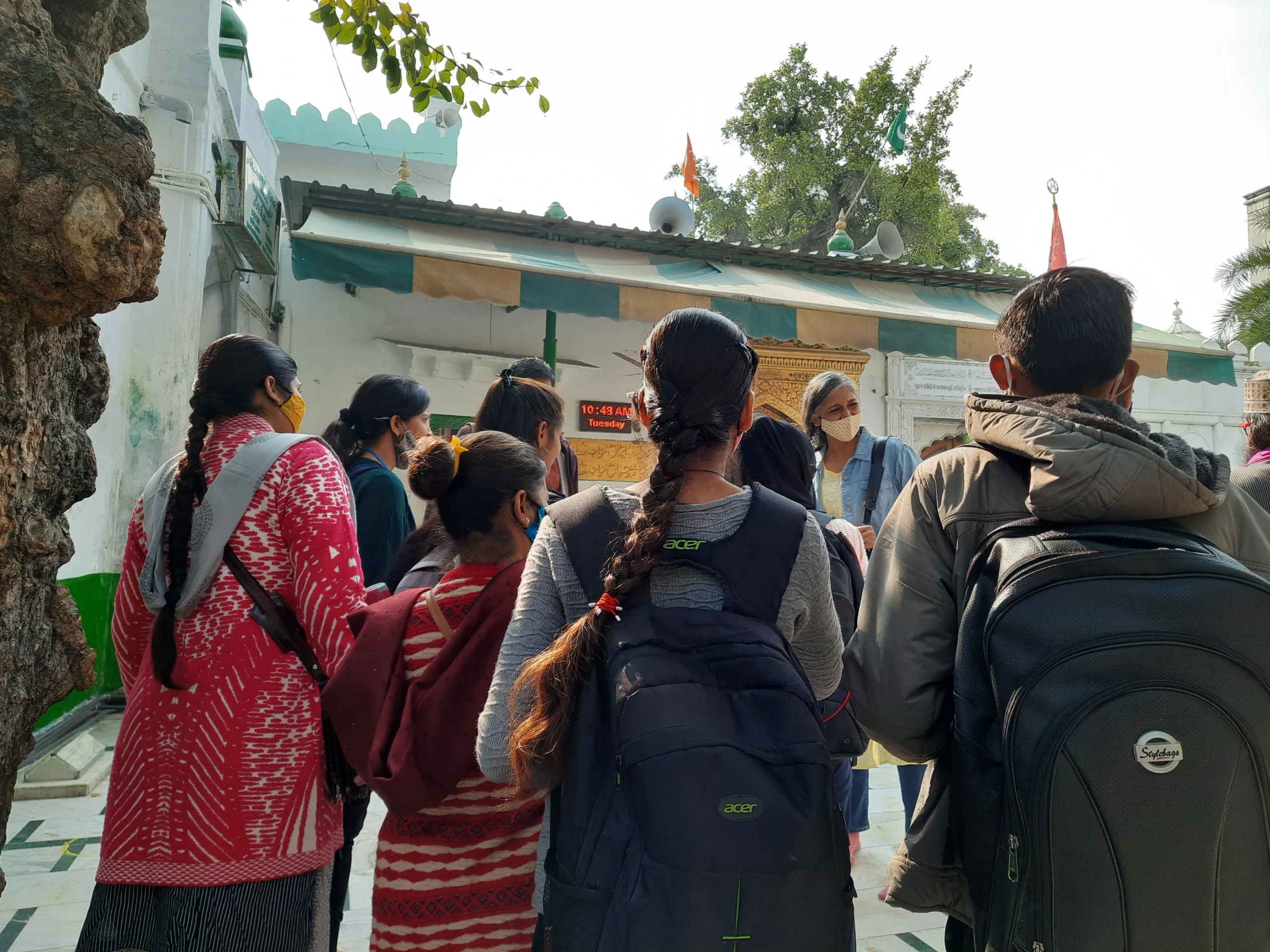
For the Digital Educators — the participants of the workshop — the serpentine lanes were much more captivating than the dargah itself.
“In Uttar Pradesh, you have so many Sufi dargahs like this,” said Rajkumari from Lalitpur, who works with Sahajani Shiksha Kendra — a feminist organisation focussing on education and literacy in western Uttar Pradesh.
The way the shopkeepers were organising the footwear of the pilgrims at the entrance of the dargah was much more intriguing to her. “This is an amazing system,” she observed.
“My mother-in-law often goes to these kinds of places to ask for mannat. I have seen many scenes like this in Lucknow, in my village, my husband’s village…” said Tabassum from Husainabad in Lucknow, who works with community-based grassroots organisation Sadbhavna Trust. Glancing at a woman possessed by a spirit who was surrounded by onlookers, Tabassum said matter-of-factly, “She will calm down in a bit.”
We spent our first few hours in and around the dargah, listening. Not so much to document the actuality of the moment, but to allow ourselves a degree of presence and alertness through the act of observation. We were giving ourselves a chance to remember and recall. Not because we must report the ‘truth’ or the facticity of the spoken, but because the act of remembering sparks an imagination. What do we remember, and what do we forget? These automatically spill into how we want to tell the story of what we remember (and forget). We learnt to observe ourselves and the conjuring of our own thoughts.
Heads full of smattered, half-heard conversations, the DEs recreated the lanes of Mehrauli on paper, and sprinkled their drawings with speech bubbles.
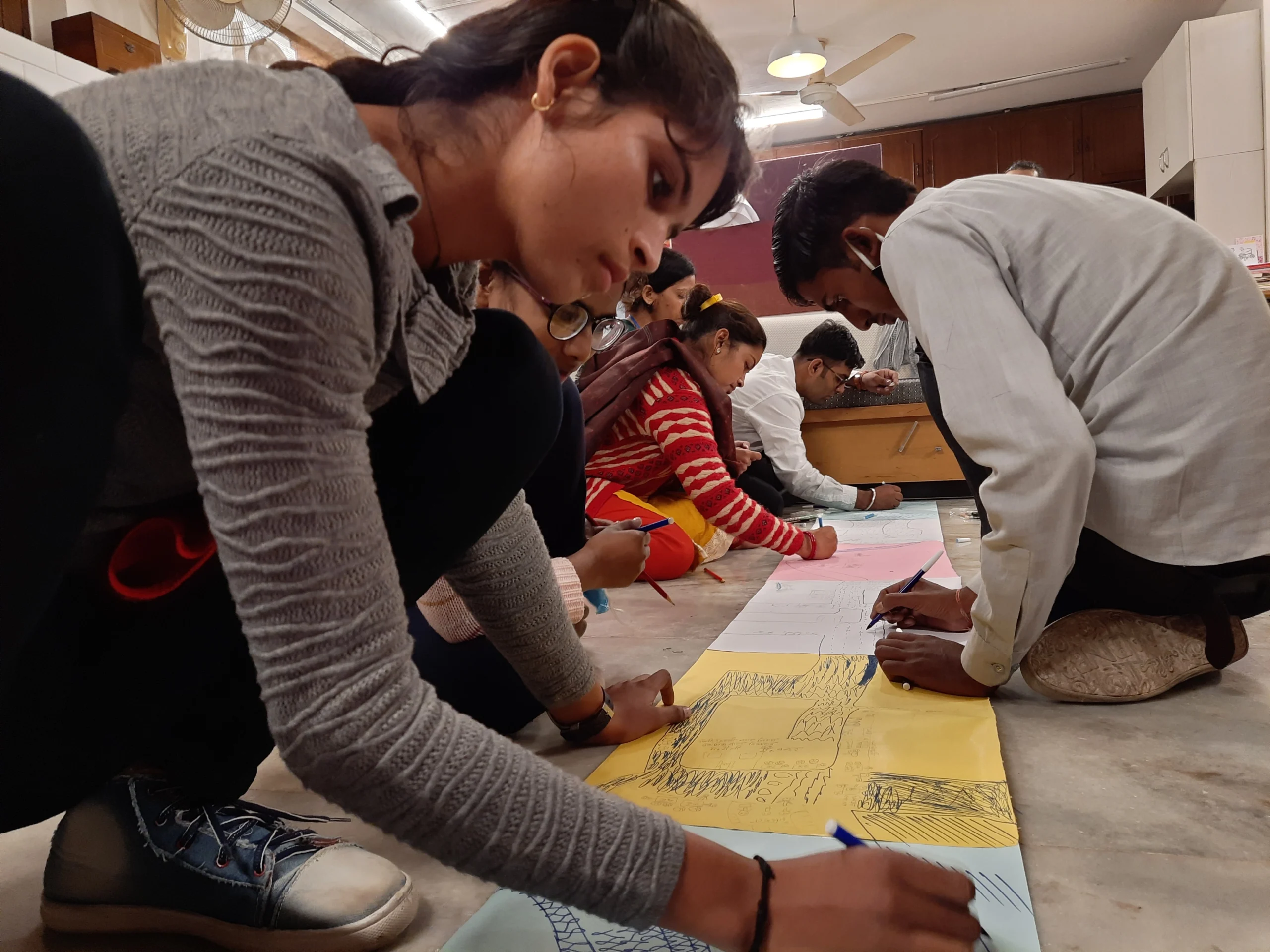
Walking around the collage, it became possible to read the street from any direction.
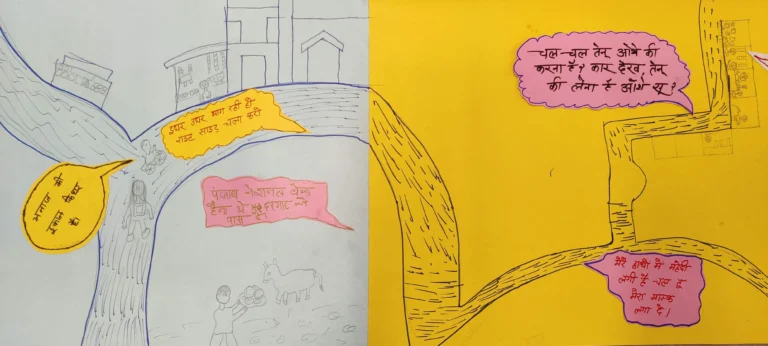
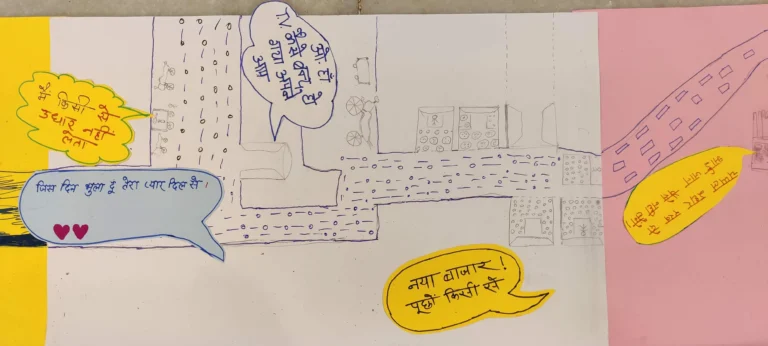
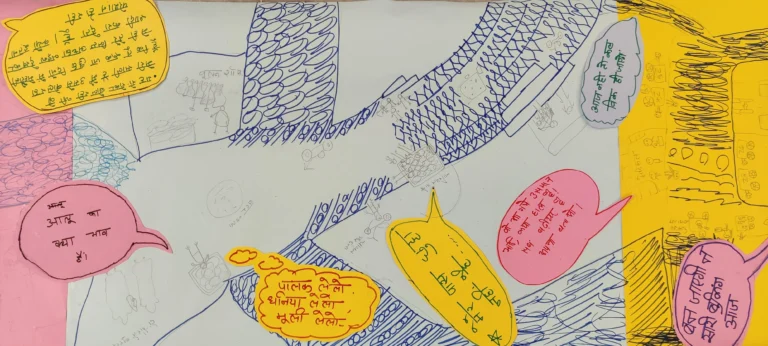
Building on this introduction to and observation of Mehrauli, over the next two days the participants shot videos of the parts of the space they found inviting, challenging or simply seductive. A chaiwala, for all the spicy gossip; a mehendi wala, an island unto himself, immersed in practice inside that bustling lane; a woman selling roses with a child on her lap; the roses themselves and their captivating redness.
The richness of discovery filled their frames.
What emerged at the end of this workshop, was a unique, singular portrait of Mehrauli created by the DEs. All that a regular traveller or outsider may enthusiastically capture — like the sufiana qawwali, the pakwaan in the streets, the colours of the lane — these did not find a place in it.
The DEs were excited by the quotidian, and it led us to explore the question together: how does one capture the ‘regular’?
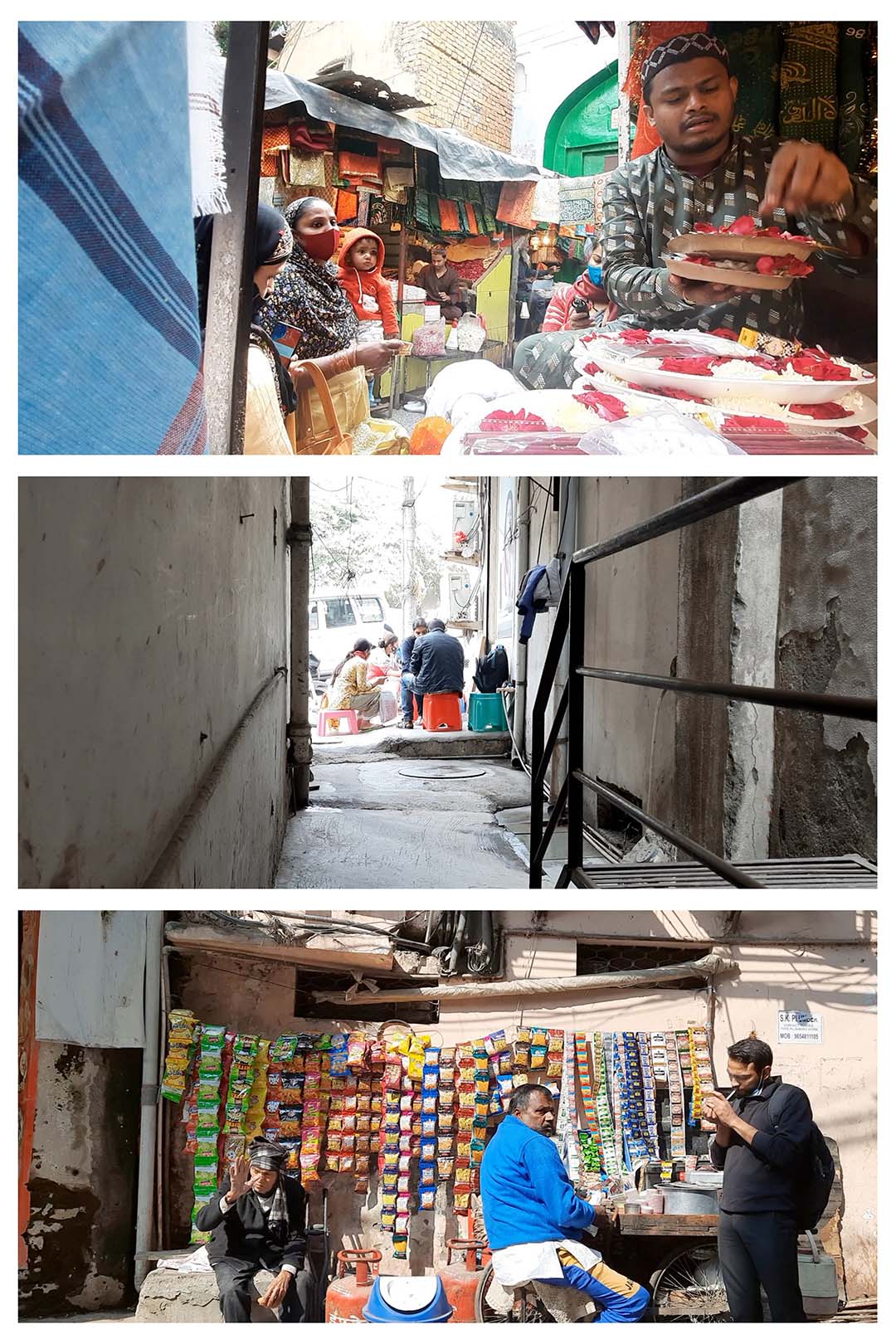
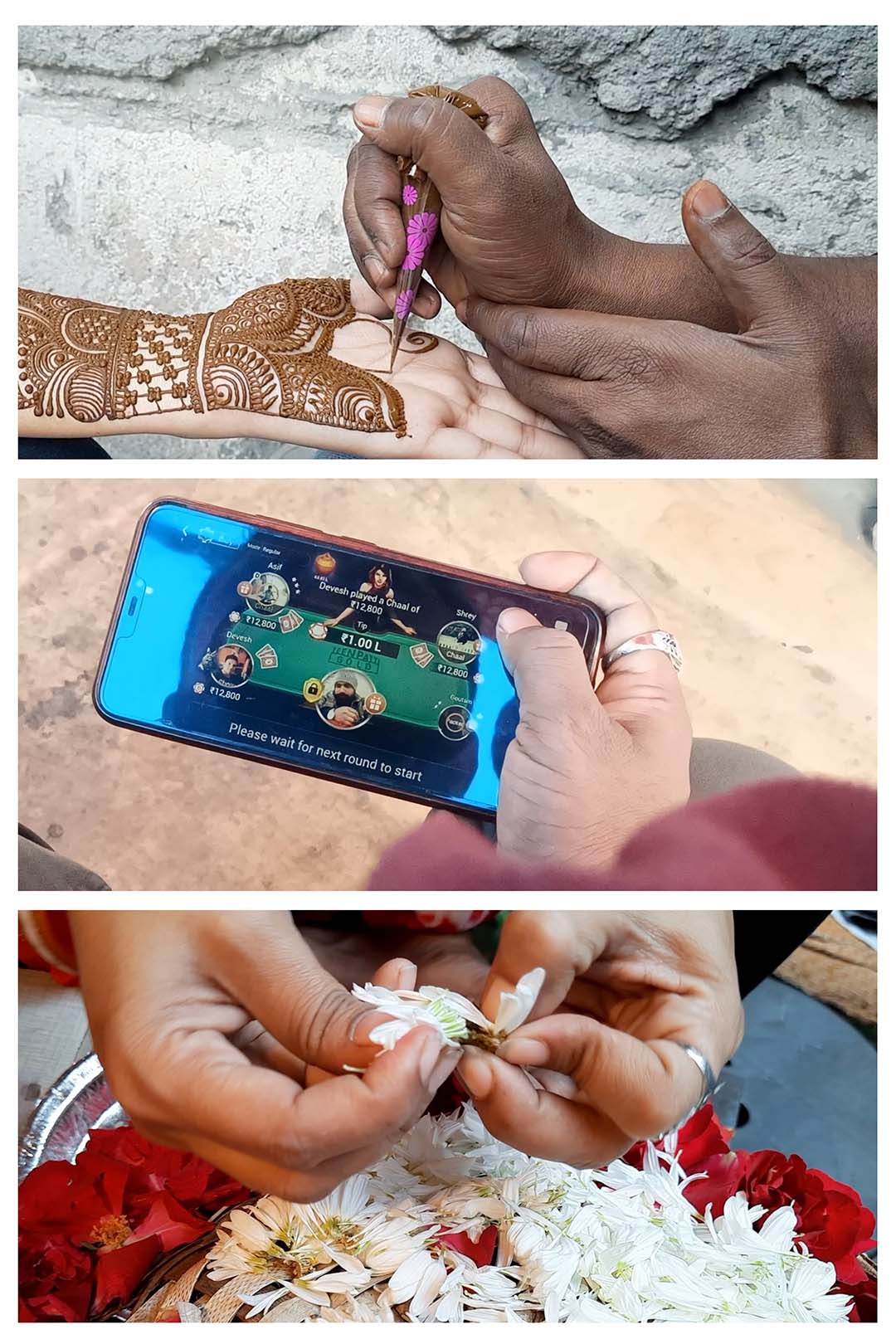
The workshop was full of conversations around these primal questions, fundamental to any kind of documentarian practice: What purposes do these experiences serve? Would one call this process of engagement pedagogical?
“In our interactions within the context of art workshops, we have felt that there is an over-emphasis on skilling,” Lokesh and Shefalee say. “We believe that developing a relationship with a place, people and materials is a very crucial step for an engaged art practice to emerge and develop. Encouraging and developing attentiveness to, and reciprocity with the world allows us to respond to it creatively as well as ethically, regardless of acquired skills.
This approach also has an ethical dimension, we hope, in not just treating people, places and objects as ‘subjects’ of art practice, but developing a relationship with them through art, which is reciprocal and responsible.”
These questions that the Digital Educators grappled with — how we form an inquiry into a space, how we pay attention to the sensorial, how we represent and which method and forms we employ — became questions for us, as we began framing these practices as pedagogy.
The Third Eye’s Learning Lab is an arts-based pedagogical platform where we come together to critically examine our own standpoints, to help us further engage and question the systems of knowledge that shape us. The Learning Lab is mentored by documentary filmmakers, image-makers, podcasters, feminist researchers and activists.
-
Ruchika Negi is Associate Editor, The Third Eye.


